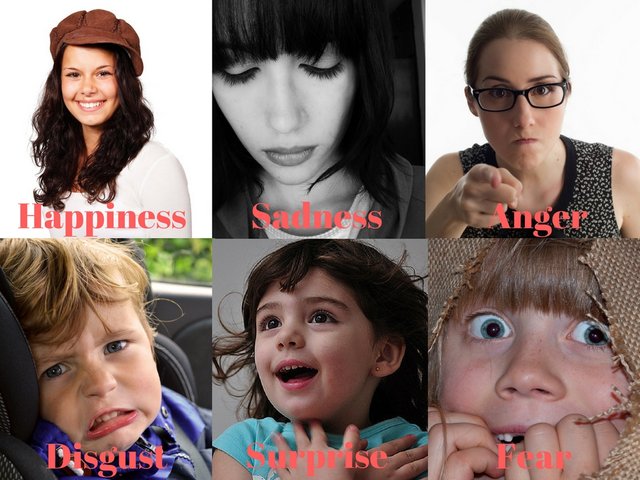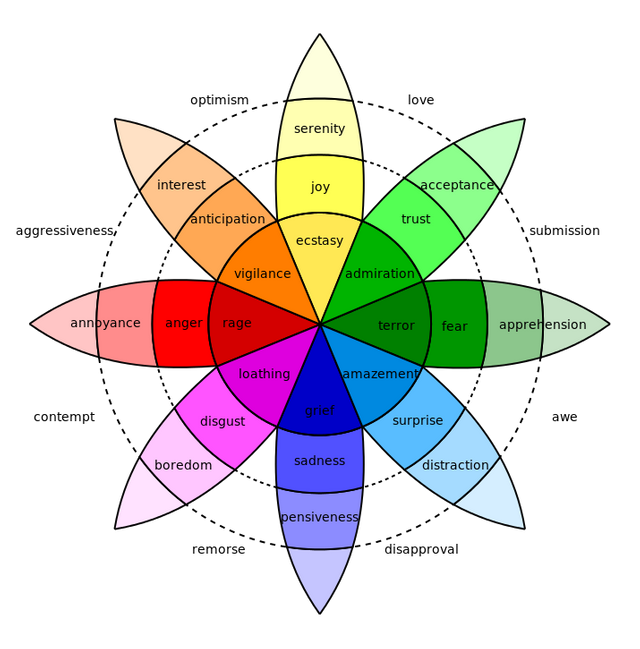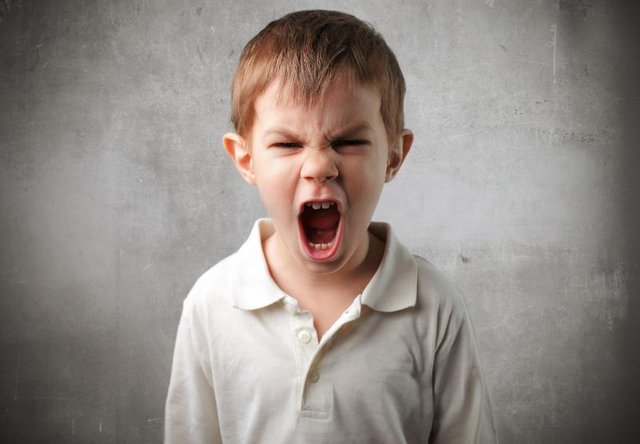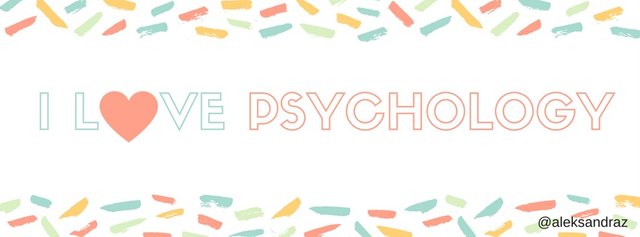Our Emotions Part 3 - Basic Emotions
There are so many different theories on what's basic emotions and wether they exist that it's impossible tp list them, but here are the most interesting and popular ones that I've discovered for myself.
Paul Ekman
Paul Ekman started his researches on emotions and human behaviour after his mother committed suicide. During his researches woman travelled to Papua New Guinea to study a tribe that was isolated from the rest of the world and was not able to learn the facial expressions of other cultures via travelling or media. The purpose of this research was to find out wether facial expressions were universal regardless of culture or not. The results were amazing - this tribe had same facial expressions as other cultures back at home. Based on the results Ekman distinguished six basic emotions: happiness, anger, sadness, disgust, fear and surprise. According to Ekman these were the emotions the facial expressions of which were universal and did not depend on the culture.

Images from Pixabay, designed with Canva
He also developed Facial Action Coding System (FACS). This is a system that classifies human expressions. The classifications are more than 500 pages long and using FACS one can describe any facial expression that is anatomically possible to make. For example, when a person is experiencing an emotion of anger, usually his or her eyes are wide open, eyebrows pulled together, and lips either closed tightly or opened wide to form some sort of a rectangle.
Robert Plutchik
Another widely-known psychologist of emotions was Robert Plutchik.
Plutchik developed psychoevolutionary theory of emotion which consists of ten postulates. One of these postulates is as follows: “There is a small number of basic, primary, or prototype emotions.” Indeed, Plutchik recognizes 8 basic emotions, they are: trust (acceptance), fear, surprise, sadness, disgust, anger, anticipation, and joy. Another postulate sounds as: “Primary emotions can be conceptualized in terms of pairs of polar opposites.” Thus, those eight basic emotions could be considered in such pairs: acceptance-disgust, surprise-anticipation, sadness-joy, anger-fear.
Some of these pairs are not obvious to my mind, so I’ll explain it further. Acceptance and disgust are opposites in terms that acceptance implies that something is accepted, and disgust on the contrary implies that something is rejected. Surprise and anticipation are the opposites in terms that when we are anticipating something we are predicting what it will be; the surprise, on the contrary carries a notion of unpredictability. The opposition of sadness and joy is not either so obvious as it may seem at the first sight. Plutchik opposes these two emotions in means of the fact that joy implies some sort of gain or acquiring, and sadness, on the contrary, implies some sort of loss. Finally, anger and fear are the opposites in terms that anger is something that is triggered in a case of “fight response”, and fear is something associated with “flight response”.
The belief that there are basic emotions implies that there are other, secondary emotions. Thus, yet another postulate goes as the following: “All other emotions are mixed or derivative states; that is, they occur as combinations, mixtures, or compounds of the primary emotions.” For example, the combination of surprise and sadness results in feeling disappointment, or disapproval. Emotions which occur as a result of combination of basic emotions that are “near” to one another on the wheel are felt very often. Less often we experience emotions that are a result of combination of basic emotions that are second nearest on the wheel, and so on. For example, combination of trust and surprise evokes the feeling of curiosity. Combination of fear and disgust ends up in feeling shame. Opposite basic emotions are in conflict and can’t create any relevant emotion. This postulate is closely related with Plutchik’s other two postulates, one of them is “All emotions vary in their degree of similarity to one another.”, and the other one is “Each emotion can exist in varying degrees of intensity or levels of arousal.” For example, anger is stronger emotion than annoyance, and rage is even stronger than anger.
All these postulates are visualized and reflected in a Wheel of Emotions developed by Plutchik:

Image Credit, labelled for reuse
The University of Glasgow, Dr Rachael Jack
In recent research of the University of Glasgow leaded by Dr Rachael Jack in 2014 it was suggested that there are only four basic emotions. Researchers of the University of Glasgow created a platform called “Generative Face Grammar platform” that is able to recognise and study facial expressions. As a staring point of existing emotions for this research was taken the common theory that there are six basic emotions proposed by Ekman: happiness, anger, sadness, disgust, fear and surprise. During this research it was found that at the very early stage such emotions as fear and surprise have a common signalling facial expression which is widely opened eyes. As well as anger and disgust share same early facial expression signal of a wrinkled nose. In such a way researchers argue that there are four basic emotions, two of which are happiness and sadness, however fear and surprise, as well as anger and disgust are combined and regarded as one emotion each.
William James
The research of the University of Glasgow was not the first time when psychologists proposed a theory that there are only four emotions. For example, in 1890 psychologist William James in his Principles of Psychology suggested that these four emotions are: grief, fear, love and rage. All other emotions are derivative from these four. It’s important to point it out, that James stated that “the emotion here is nothing but the feeling of a bodily state, and it has a purely bodily cause.” (James, 1967, p. 110)

Image credit, labelled for reuse
Andrew Ortony and Terence J. Turner
Ortony and Turner hypothesize that there are no basic emotions at all. They wonder that if basic emotions actually exist, how could it be so many disagreements about them? They also argue that such emotions the are commonly included into the list of basic emotions as surprise, interest, and desire are not emotions at all. For details on this, please proceed to their article What's Basic About Basic Emotions? They also point out that different criteria is taken by different theoreticians to state basic emotions which also makes it impossible to find those basic emotions. Some take the psychological aspect as basis and consider those emotions as basic which do not consist of any other emotions. Others consider emotion to be basic if the emotion involves some physical biological activity, such as trembling, sweating, crying, etc. Ortony and Turner suggest that there are no basic emotions, but rather “basic classes of appraisal”.
Magda Arnold
There were also those who proposed that there were a lot of basic emotions, for example, Magda Arnold distinguished eleven basic emotions:
anger, aversion, courage, dejection, desire, despair, fear, hate, hope, love, sadness. As Ortony and Turner describe it, Arnold “There were also those who proposed that there were a lot of basic emotions, for example, Magda Arnold distinguished eleven basic emotions: anger, aversion, courage, dejection, desire, despair, fear, hate, hope, love, sadness. As Ortony and Turner describe it, Arnold “used as her criterion the requirement that such emotions be elicited as a result of the combination of three fundamental dichotomous factors: the desirability or undesirability of the object of the emotion, the presence or absence of that object, and the ease or difficulty of attaining it. This is why Arnold believed courage (or rashness and daring) to be a basic emotion; courage occurs when an undesirable object is not present but is difficult to avoid or overcome.”

Pixabay
At the moment I don’t feel that I’m informed enough to choose to support any of these or other theories. I think that it’s right to define basic emotions, as I support the viewpoint that some emotions are more complex and consist of more simple emotions. A lot of theories like theory by Ekman and the research conducted in the University of Glasgow take as a basis for their conclusions facial expressions. While I tend to sympathise with Ekman's theory, I don't support the theory of the researchers from Glasgow University. Personally I don’t feel like it’s right to define basic emotions based on universally recognized facial expressions, or on the similarity of facial expressions while experiencing certain feeling. Maybe these expressions and emotions are universally recognized, and maybe the expressions are similar at some point when experiencing different emotions, still it’s questionable wether they are basic due to that fact. What I feel is that there's something more in emotions than just facial expression. A person who is near the person who's actually experiencing an emotion can tell what the emotion is, and the emotion could also not be simple, and the one who's experiencing the emotion could not acknowledge which emotion he or she is experiencing. It's common practice that a psychoterapist reflects what he or she feels during the session in order to understand the feelings and emotions of the patient.
The topic of emotions is really fascinating to me, and I'm determined to learn much more about it, in a deeper way and from different perspectives. Stay tuned! :)
I just love psychology, so be sure to follow @aleksandraz and read my other articles on this topic.
Thanks! :)
——
SOURCES:
What's Basic About Basic Emotions? by Andrew Ortony and Terence J. Turner
Emotion: Theory, Research, and Experience by Robert Plutchik & Henry Kellerman, 1980
Are There Basic Emotions? by Paul Ekman, 1992
An Argument for Basic Emotions by Paul Ekman
The Emotions by William James, 1967
Cognitive Psychology by Nick Braisby and Angus Gellatly
Paul Ekman
Psychoevolutionary Theory of Basic Emotions
University News


Included in Steemprentice Spotlight

And tweeted by SteemLand :)
Thanks a lot! :)
This post has been linked to from another place on Steem.
Learn more about linkback bot v0.4. Upvote if you want the bot to continue posting linkbacks for your posts. Flag if otherwise.
Built by @ontofractal